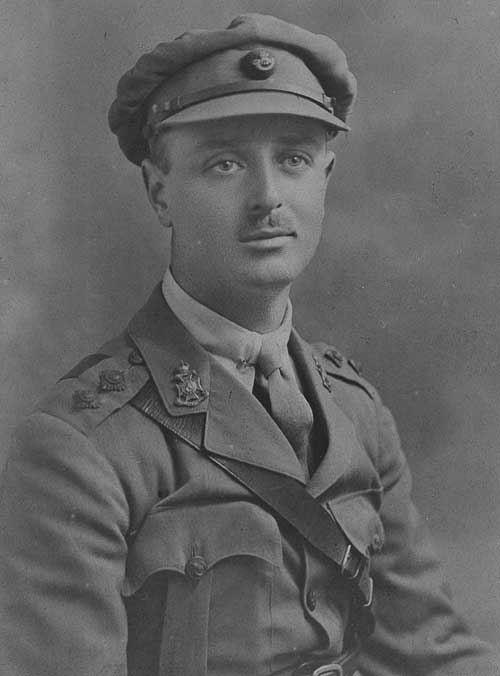
Auction: 5005 - Orders, Decorations, Campaign Medals and Militaria
Lot: 161
A Well Documented Great War Group of Three to Captain S.G.H. Watts, 21st (County of London) Battalion, The London Regiment, Commanded ´B´ Company in the Attack on Starfish Line during the Battle of Flers 1914-15 Star (2949 Pte. S.G.H. Watts 21-Lond. R.); British War and Victory Medals (Capt.), extremely fine, with two Regimantal badges and a quantity of original documents including Watt´s Commission as Second Lieutenant 7.12.1915; typed copy of General Rawlinson´s address to 47th Division 27 October 1916 thanking them for their ´gallantry and endurance´ while with 4th Army (this copy, now torn, annotated in pencil in top right corner ´S.G. Watts 2/Lt. i.c. B Coy. 1/21 Lond. R.); War Office letter of thanks on disembodiment; invitation to 19 London Regiment Trooping the Colour 1935; letters concerning possible re-employment 1941; three Great War period photographs, and a large framed coloured cartoon of Captain Watts in uniform (lot) Estimate £ 200-300 Captain Stanley George Henry Watts was commissioned into the 21 (County of London) Battalion, The London Regiment (First Surrey Rifles) 5.12.1915. The Battle of Flers-Courcelette The capture of ´High Wood´ and the neighbouring lines, ´Hook Trench´ and ´Starfish Line´ on 15 September 1916 was of crucial importance in the advance of Rawlinson´s 4th Army in the opening stages of the Battle of Flers. At first the advance did not go well. ´High Wood was not to be cleared without paying a heavy price... The Infantry Assault on the wood was checked by machine-gun fire almost at the outset and no progress could be made in spite of the reckless bravery of officers and men.
The check at High Wood, where so many battalions had been absorbed into the struggle, caused the corps, with Army approval, to name Starfish Line as the main position to be consolidated, thus implying that when the second objective had been secured little further progress would be expected. The message was issued to divisions at 10.30 a.m.
At 11.40 a.m. after the 140th Trench Mortar Battery had fired 750 Stokes mortar shells into High Wood - a hurricane bombardment which only occupied 15 minutes - the Germans began to surrender to bombing parties of the Londoners which worked forward round the flanks. Several hundred prisoners were collected, and six machines and two 10.5cm. howitzers were captured when resistance came to an end. The survivors of the 141st Brigade, scattered in trenches and shell-holes, were then reorganized as a composite battalion to hold the first objective. So High Wood, which had defied every British effort since the 14th July, fell at last to the 47th Division; but it was now nearly 1p.m. and the capture of the Starfish Line, 700 yards ahead, had yet to be accomplished. The German batteries were shelling the captured ground with great fury, placing barrages on all approaches to the new forward positions.
About 3.30p.m. the 1/21st and 1/24th London, belonging to Br.General F.G. Lewis´s 142nd Brigade, in reserve, recieved orders direct from the division to carry on the attack. These battalions, which had no time for reconnaissance, advanced to High Wood about an hour later but were not able to make a simultaneous assault. Passing east of the wood, the 1/21st London and one company of 1/24th went forward about 5.30p.m. with splendid resolution through artillery fire which inflicted heavy loss; brought to a halt in front of the Starfish Line by the fire of machine guns which the British barrage had not been able to subdue, many of the survivors remained out in shell-holes rather than withdraw. As the light began to fade the other three companies of the 1/24th London, which had experienced great difficulty in getting clear of the western side of the wood and forming up for the attack, made an equally gallant and hopeless effort to reach the objective. Thus, when darkness fell, the 47th Division held no organized positions forward of the first objective... (Miles ´Military Operations France and Belgium 1916´, pp.335-336, refers). The history of the 47th Division records that at the end of the day just 2 officers and 60 men of 21 London Regiment were left out of the 17 and 550 that had gone into action late that afternoon.
Sold for
£200




